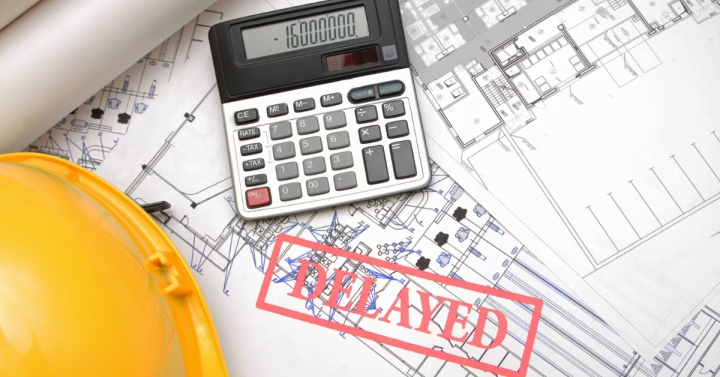
Construction delays don’t just cost time they cost money, clients, and reputations. For builders, project managers, and owner-builders, spotting the early signs of underperformance can be the difference between a successful project and a major setback.
Below are the most common early warning signs of delays and what can be done to manage them effectively.
1. Missed Milestones and Slow Progress
When key stages like slab pour, framing, or lock-up begin to fall behind, it can create a ripple effect across the entire schedule. Minor delays early on often snowball into much bigger issues.
According to Infrastructure Australia, more than 40% of large infrastructure projects are delivered late or over budget, often due to poor planning.
TIP: Use a clear timeline or Gantt chart to track weekly progress. If one milestone slips, take action immediately to keep things on track.
2. Poor Communication or Delayed Updates
Late responses, vague progress updates, or unclear reporting are common red flags. These can lead to confusion, disputes, and work being done out of sequence.
Poor communication is one of the top causes of construction disputes worldwide.
TIP: Hold short, regular site meetings and log all updates and decisions even verbal ones.
3. Rework or Quality Issues
Frequent rework slows down progress and increases costs. It’s estimated that rework can add up to 20% to a project’s total cost, especially if it involves major systems like waterproofing, electrical, or framing.
TIP: Use quality checklists at each stage and inspect all work before signing off. Taking progress photos can also protect against disputes.
4. Budget Overruns or Unapproved Variations
Projects often fall behind when budgets are not monitored closely. Unexpected material costs or unapproved scope changes can force contractors to pause work or cut corners.
TIP: Keep a variation log and ensure all changes are agreed to in writing before starting. A small paper trail can prevent major problems.
5. High Turnover or Disengaged Teams
When workers leave midway through a build or trades start arriving late, it’s often a sign of poor coordination or unclear expectations. With Australia projected to face a shortage of over 100,000 skilled construction workers by 2026, good team management is more important than ever.
TIP: Keep a clear schedule, ensure materials are ready on-site, and maintain consistent, respectful communication with your team.
6. Confusion Around Contracts
If there are frequent questions about what’s included, who is responsible for what, or when payments are due, it usually means the contract wasn’t explained clearly from the start. This can lead to misunderstandings, disputes, and costly delays.
TIP: Take the time to fully understand your contract not just sign it. Clarify roles, variations, warranties, and handover responsibilities before the project starts.
How to Prevent Construction Delays
Even small builders or owner-builders can prevent delays by using a few simple strategies:
- Improve planning and scheduling
Tools like Gantt charts, checklists, and critical path tracking make timelines clearer and more manageable. - Document everything
Always get variations, approvals, and scope changes in writing. Even informal emails or signed notes can protect you later. - Communicate regularly
Don’t rely on assumptions. Keep suppliers, subcontractors, and clients in the loop. - Ask for help early
There are short courses, guides, and mentoring programs that can provide practical support even during your build.






